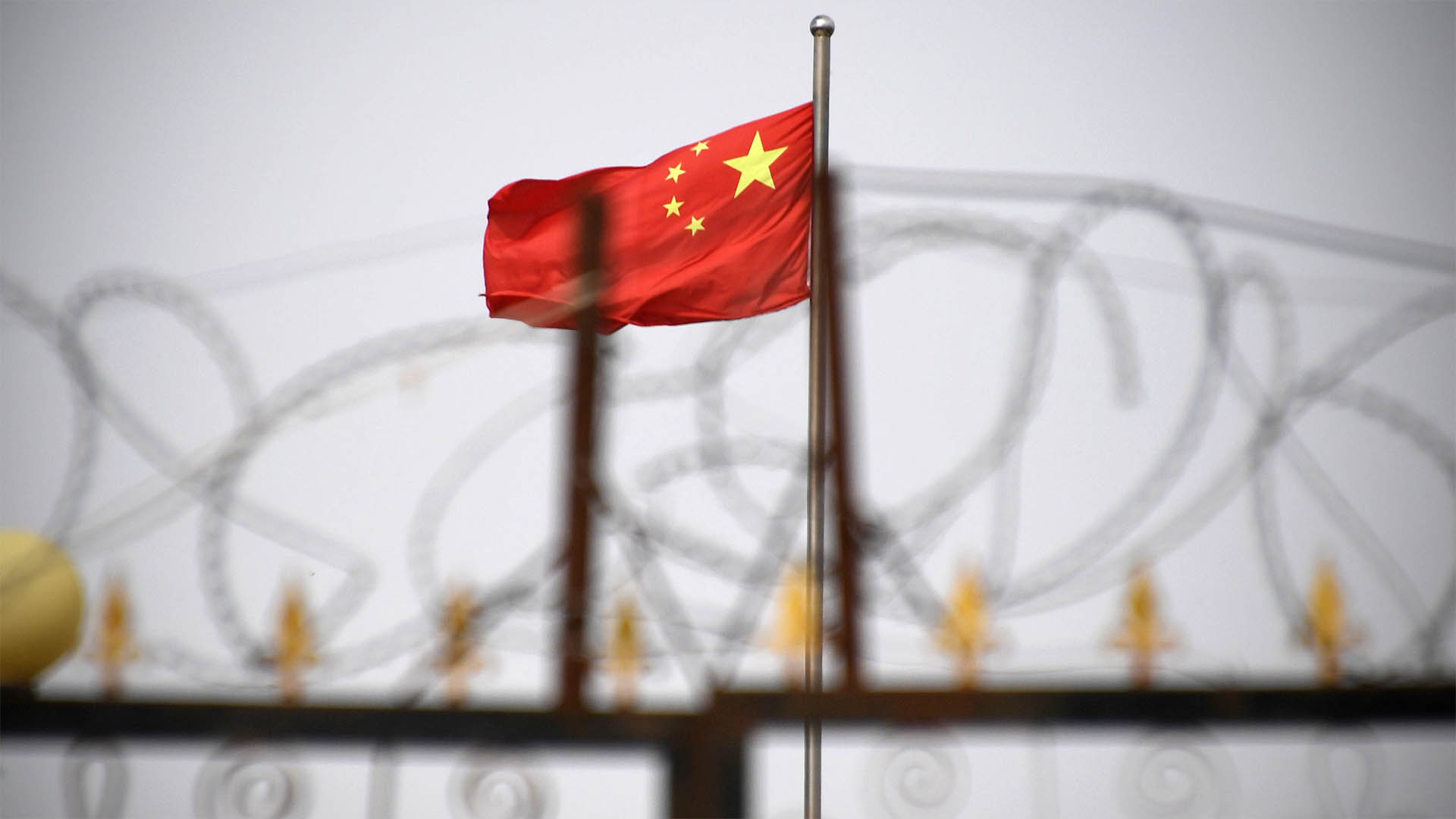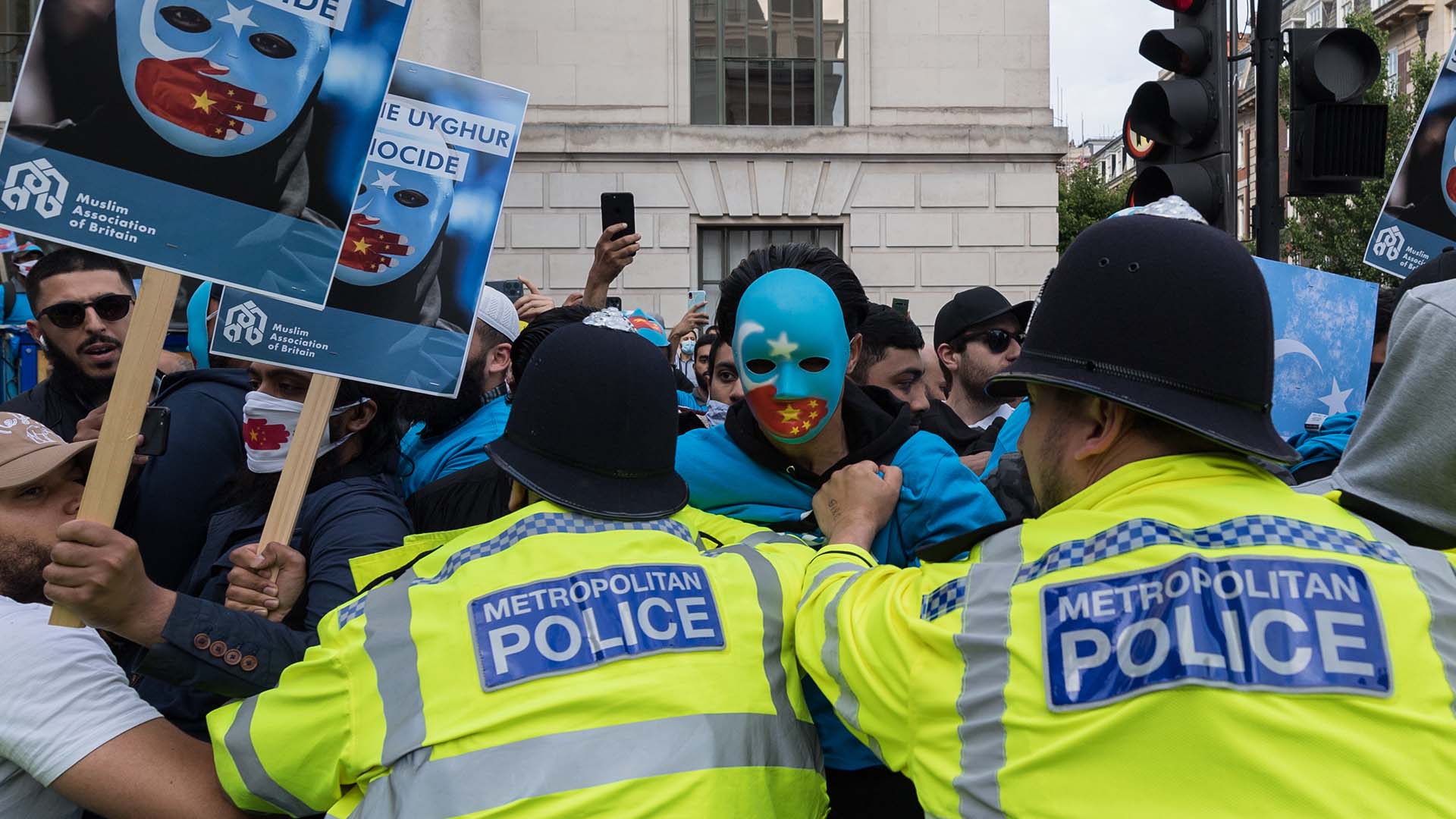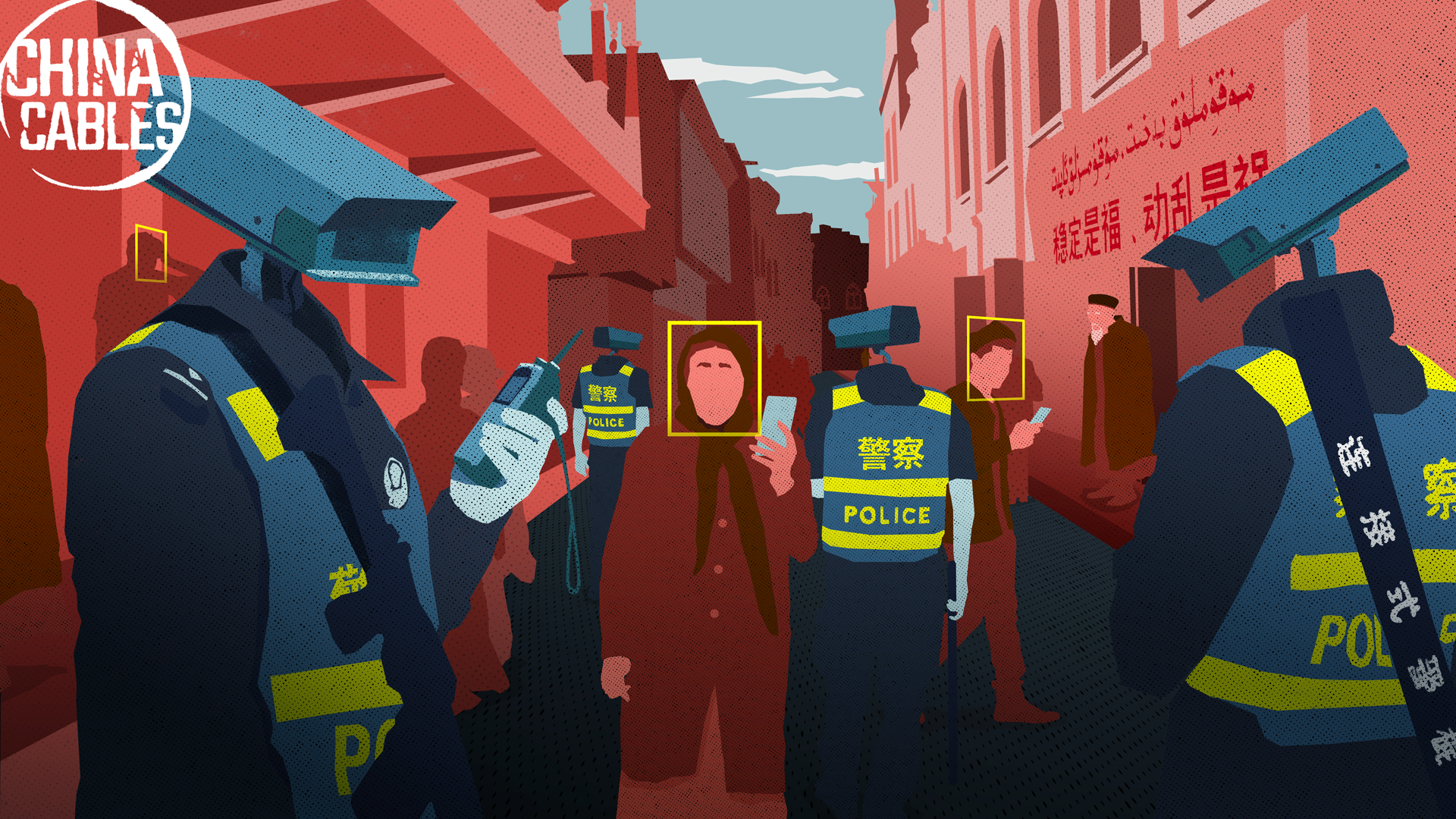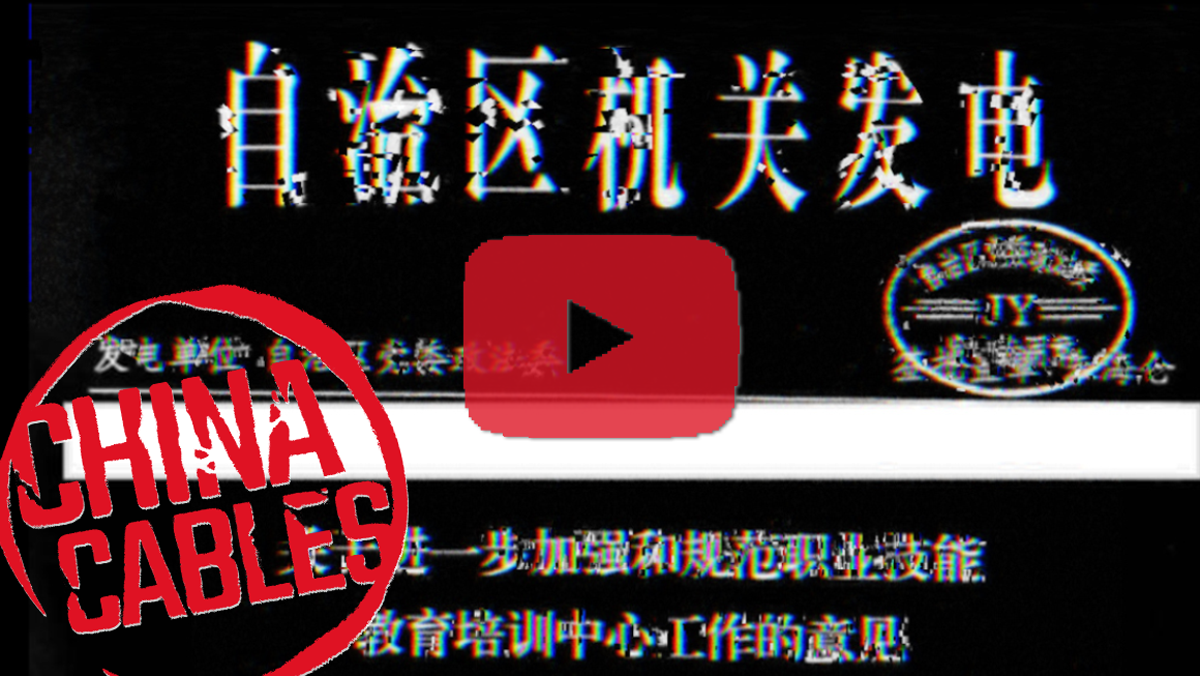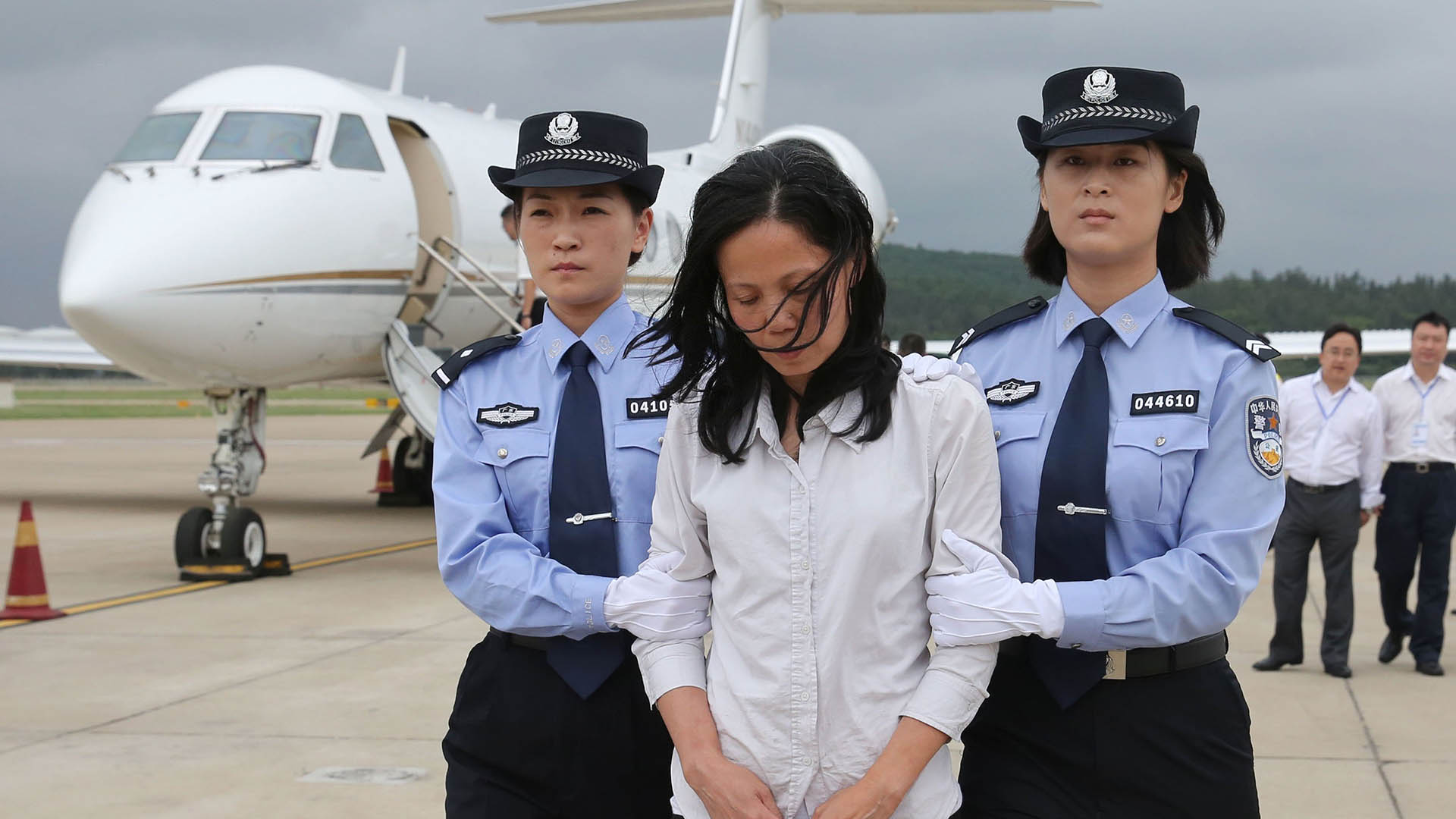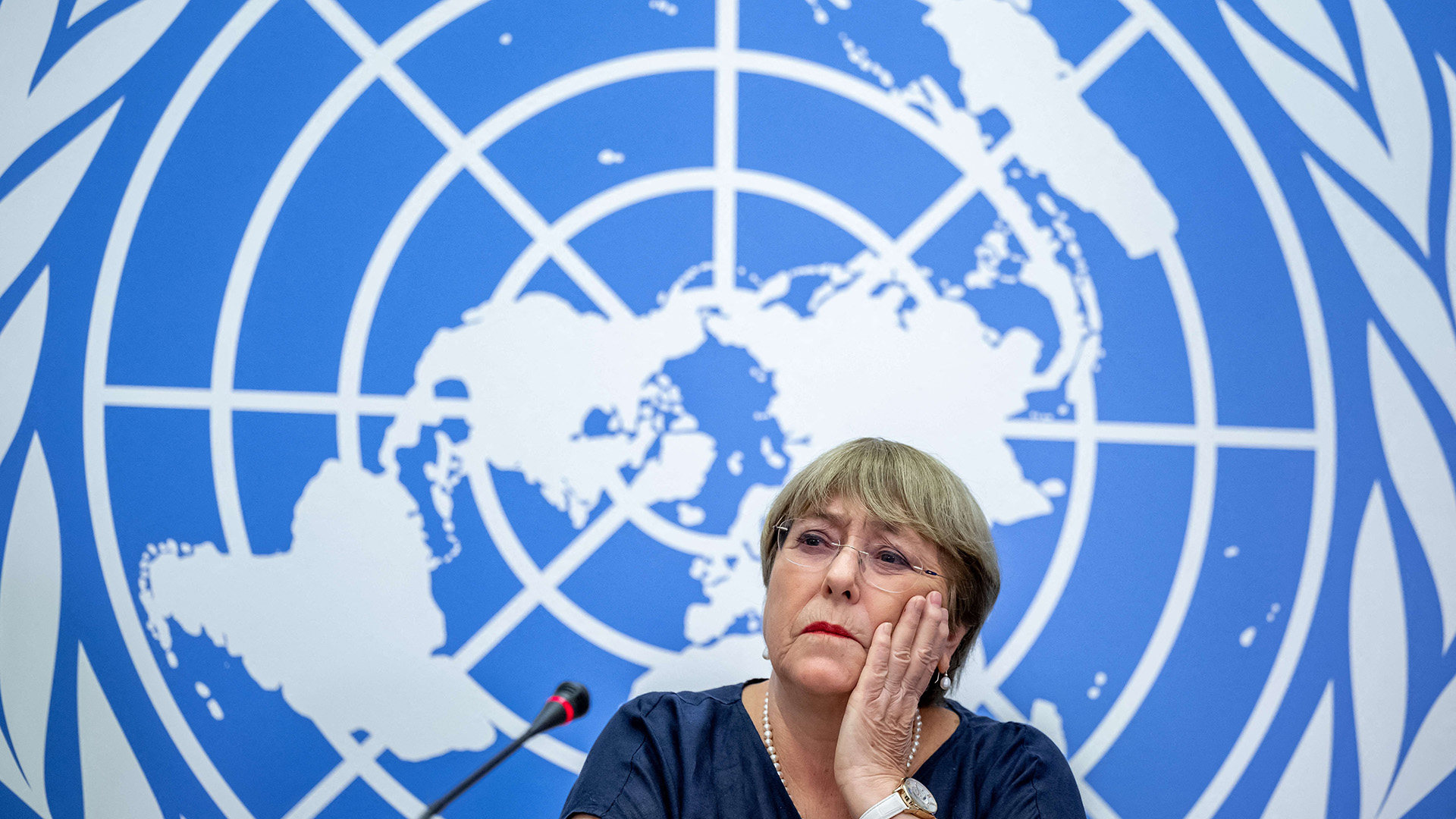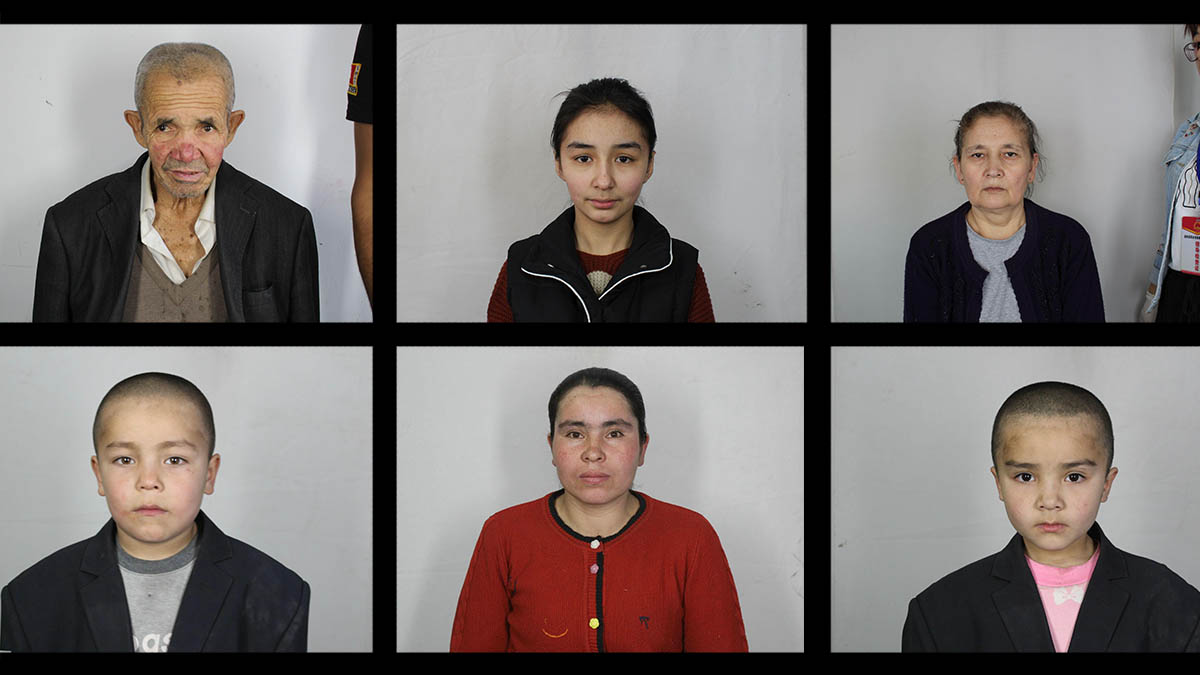The Winter Olympics are under way in Beijing in an event that’s launched the country back into the international spotlight over its treatment of Muslims and ethnic minorities in its far western region of Xinjiang.
For nearly a decade, China has pursued an a heavy-handed program of indoctrination and forced assimilation to address what it calls a terrorist threat in Xinjiang. To this end, the country built a an unprecedented system of surveillance and detained millions of Uyghurs and other Muslim minorities in camps without charge or trial.
In December, the Biden administration announced that it would hold a so-called diplomatic boycott of Beijing Winter Olympics, citing the country’s oppressive policies in Xinjiang. The move means that the U.S. will not be sending a delegation of top government officials to the games, although American athletes will still compete and there will be no political restrictions on spectators. Countries like the U.K. and Japan have announced similar boycotts, which are seen as largely symbolic. Human rights groups have called for harsher measures and have encouraged athletes to individually boycott the games to protest the country’s treatment of Uyghurs and other Muslim minorities.
In 2019, the International Consortium of Investigative Journalists released the China Cables investigation, which revealed secret memos detailing the operations of the internment camps in Xinjiang. It provided an unprecedented view into the coercive nature of China’s indoctrination centers in Xinjiang and how Chinese officials use a massive mass-surveillance system to isolate the province from the rest of the world.
To discuss the evolving situation in Xinjiang, ICIJ checked in with Darren Byler, an anthropologist and an assistant professor at Simon Fraser University’s School for International Studies. Byler has studied Uyghurs in Xinjiang extensively and is releasing a new book, Terror Capitalism, this month focusing on the lives of men in Xinjiang’s capital Urumqi.
We do a lot of reporting on sanctions and other trade restrictions the U.S. government places on human rights violators and corrupt actors on the world stage. How have those played out in Xinjiang?
Well one of the main tools against the Chinese companies participating in the Xinjiang repression is called an entities list. It comes from the department of commerce and it limits one-way trade from US companies to those companies, and not the reverse. So it’s not a full sanctioning. It means that a lot of these companies have continued to sell products in the U.S. You can sometimes find this stuff on Amazon and places like that, although you often can’t find the actual company name – it’s often subsidiaries. There’s uneven enforcement or no enforcement at all when it comes to the sale of these things.
Some Chinese companies on the lists have felt some pain as a result. Some companies had planned to go public in the U.S. and had to call off IPOs. Other companies saw their stocks plunge, which I think had to do mostly with investor concern over how U.S. actions might affect their bottom lines, but also I think reflected concerns over the ethics of working with some of these companies. So it has had an effect of keeping some of these companies more confined to a domestic market in China or to move them to markets where buyers and investors are less concerned over human rights.
So it’s had an effect but it hasn’t been enough to wipe out the companies. It has not had that much of an effect on the systems being used in Xinjiang. A few companies have said that they’ve withdrawn from the region, but it’s hard to verify that they’re no longer contributing to surveillance there.
And how about pressure around the region’s cotton and textile industry?
The relocation of supply chains when it comes to textile manufacturing and garment manufacturing has had a really dramatic effect in terms of an economic cost. That I think is part of what has really motivated China to attempt to reframe the narrative. The Uyghur region is the source of more than 80% of Chinese cotton which is about a fifth of the world’s cotton so it’s pretty significant when it comes to textiles and garments most local brands on the lower end have sourced from this region. A lot of the detainees being transferred from camps to factories were being put into that kind of work.
And then just recently, President Biden signed into law a bill that bans products from Xinjiang from entering the US unless the companies can prove that the products were not made with forced labor which is a really difficult task. So a lot of the companies that are based in Xinjiang now are shifting to the domestic market.
How about the broader view of political and economic pressure on China over Xinjiang, including the soft boycotts around the Olympics. Has it worked?
I think international pressure in general has appeared to help accelerate China’s process of moving away from mass detention and mass interment to other forms of detention and control, which in some ways is better. So in 2019, the regional governor said that everyone had “graduated” from the camps – meaning that some people were being released from detention. Some were sent home to their villages and being put into some form of house arrest; others were sent to factories using forced labor. And we saw in some cases camps were being closed. In some cases the camps were being turned into more formal prisons, where people are serving time resulting from actual criminal sentences. Most have not been released, but it did seem like the government has moved away from the mass warehousing style of these camps.
One of the primary changes that we have seen is that there seems to be much fewer new detentions of people. There is the sense in Xinjiang now that if you have not yet been detained you probably won’t be. I think the sense in Xinjiang now is that things have sort of normalized.
You new book focuses on a phenomenon you call ‘terror capitalism.’ What is this?
Terror capitalism is conceptual frame that I developed to understand what I was observing in peoples lives and the social structures that in place in Xinjiang. It refers to the emergence of a security industrial complex. It’s a system that brings together private companies as state contractors in alliance with the government and as a part of what they refer to as “the people’s war on terror.” As to the capitalism part of it, there are two forms of capital. One of them is data that is being harvested from Uyghur society and Uyghur behavior — from biometric data to social media data — all different forms of data. And then the second main form of capital is the labor that comes out of the camp system.
What really made me think about this was when the Xinjiang development ministry talked about the camps becoming a main driver of the economy. They said coal and natural gas still drive the economy, but now we have this new camp labor. We’ve seen on a massive scale people being transferred from camps to factories or instances of the camps themselves becoming factories. This has created a new form of unfree labor that is really unprecedented in the world when it comes to the way surveillance is being used in conjunction with a camp system.
Your book discusses “smart camps” and “smart factories.” Can you talk about this a bit?
So “smart camp” or “smart campus” is a term that the companies that built these things use. These are camera companies that got their start in hardware, and in some cases software, that are building computer vision systems for camp, for instance, that has physical boundaries, but in some cases these camps have cameras throughout that are face recognition-enabled.
There are zero blank spots throughout the camp in terms of surveillance. Within the bounds of the camp, someone can be found at any point in time. And they can play with time itself to see what people were doing in the past, and there’s also pattern recognition built into these software systems and in some cases they’re even looking at peoples’ “affect”, which means they’re looking at the emotions on peoples’ faces and analyzing them. We don’t know how accurate those assessments are but that’s the goal of these systems.
I know you spent a lot of time in Xinjiang and this is your second book about the region and its troubles. In “Terror Capitalism,” you focus your case studies on a few Uyghur men. What most surprised you or intrigued you about your research?
One of the things that caught me was the strength of their friendships in Xinjiang. It made me think of what it means to be a friend. Most of these men were young single people who were delaying marriage; they were either very anxious or quite afraid of the police and the harassment that they were experiencing. So they really turned to each other to give each other support and I was drawn into those friendship networks with a bunch of different groups of friends so I could really come to observe how they cared for each other and how they fostered forms of what I would call anti-colonial friendships. A lot of it was built around them sharing food on a regular basis and through storytelling.
They would often talk about things they experienced in the previous week or day. I think by narrating their stories to each other they were able to claim a kind of authorship over their identity and help overcome a powerlessness that they would feel otherwise. That was really instructive to me, to see how people can support each other even when they’re so vulnerable by sharing each other’s pain and suffering. That taught me something about what it means to rely on other people.
This interview has been edited and condensed for clarity.
